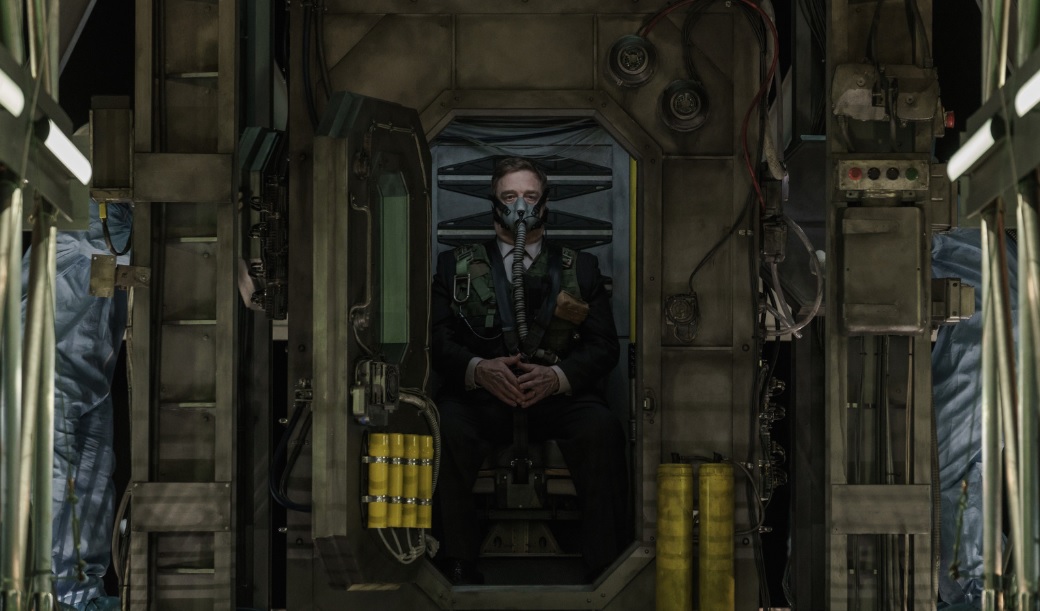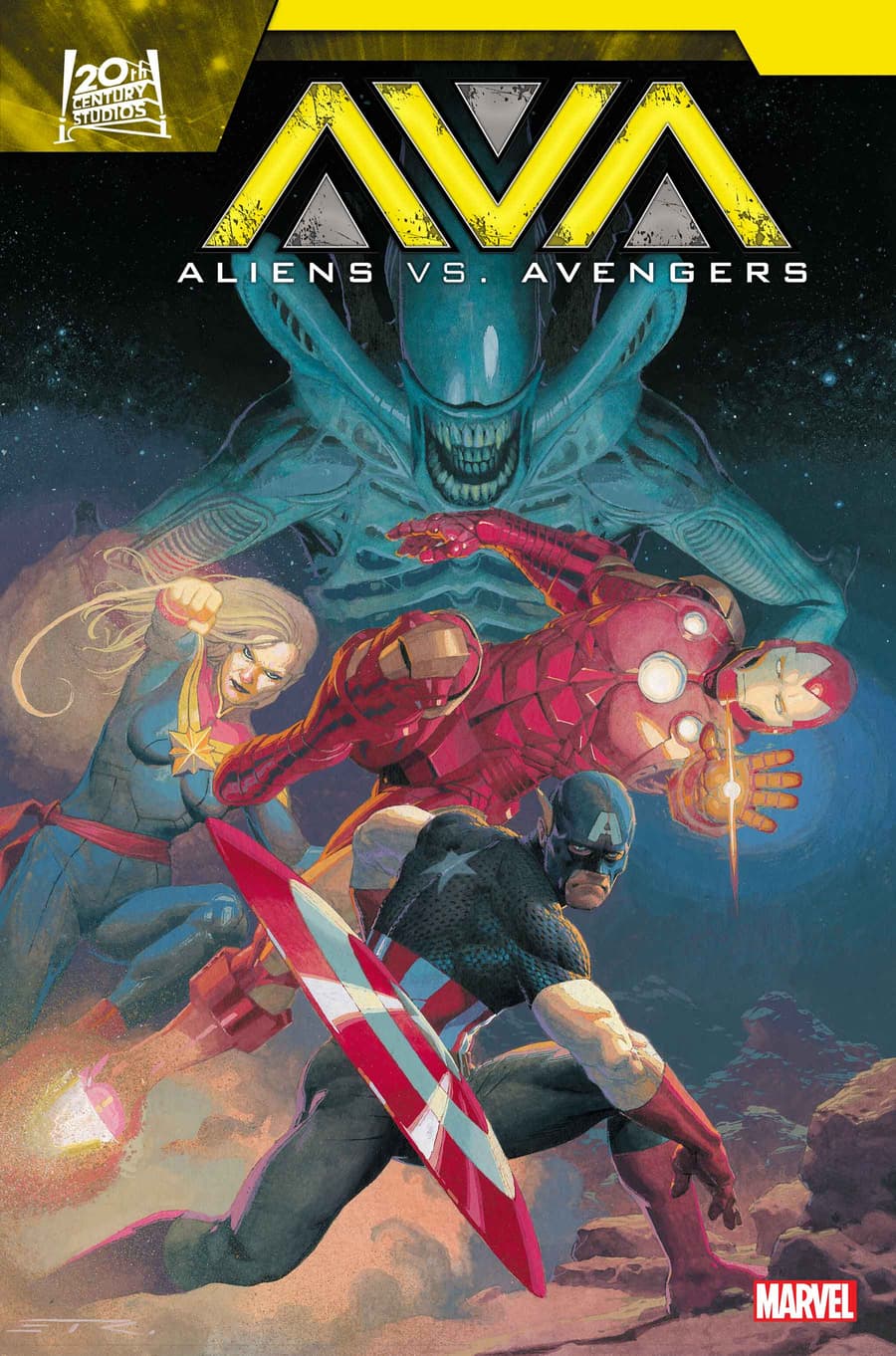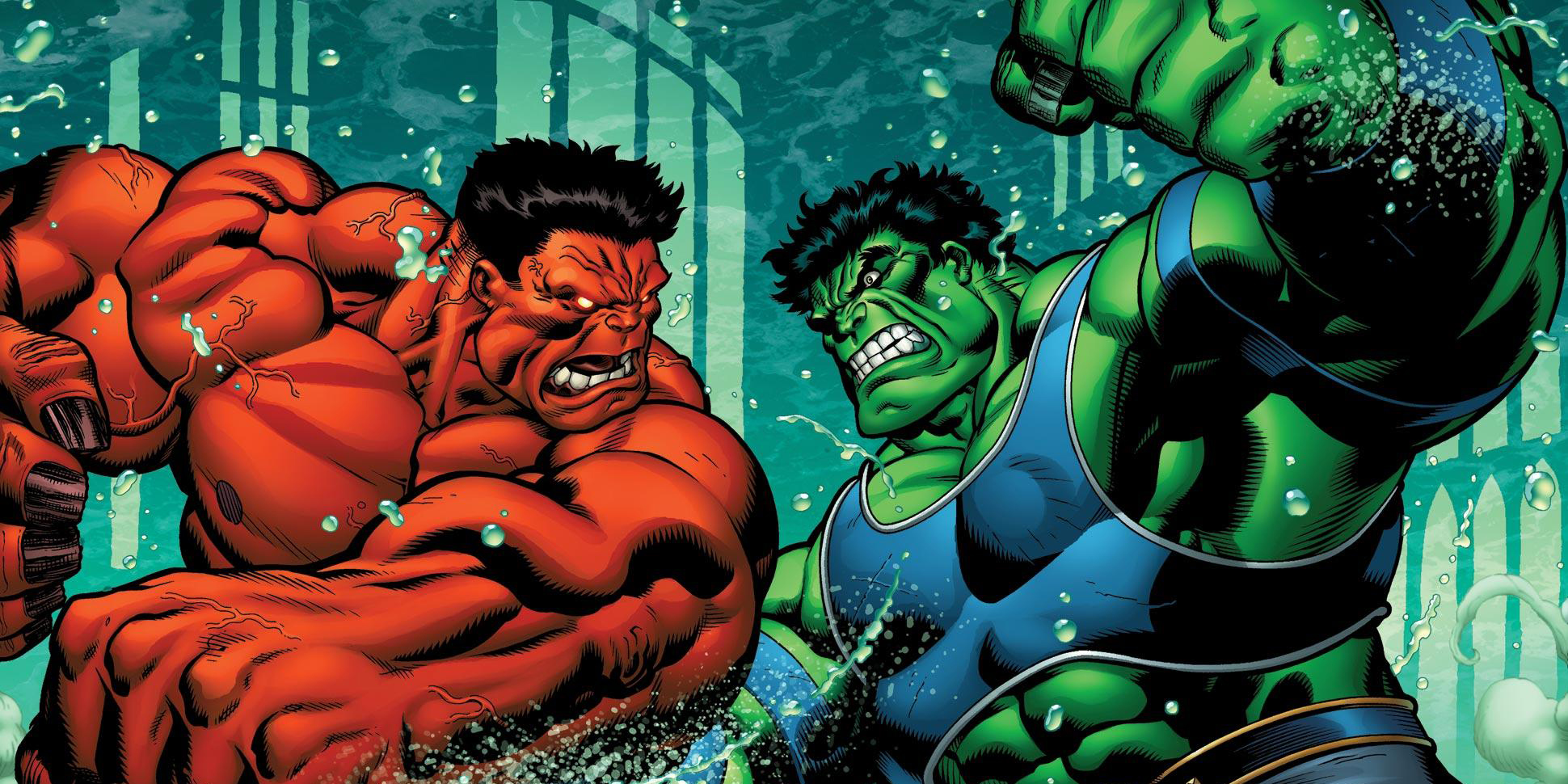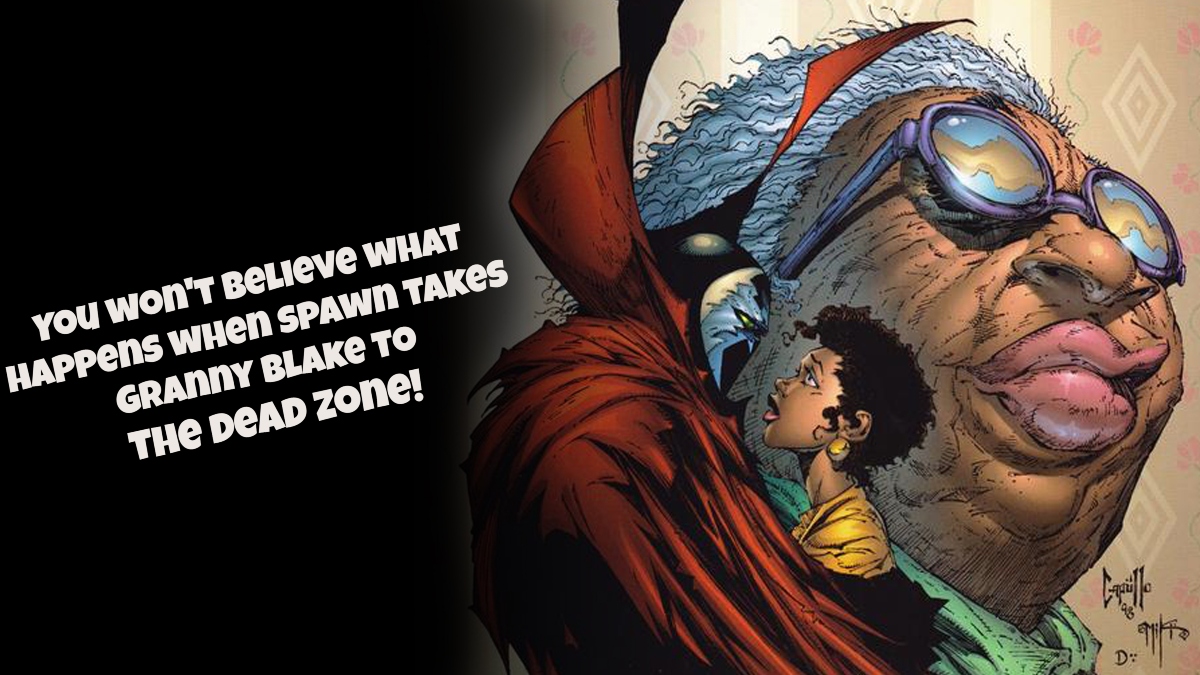With an enemy occupation, the real enemy may not be the foreign invaders, but it may be the neighbors who sympathize with the enemy.
In the sci-fi backdrop of the future, Captive State looks into the conflict of both sides of the conflict—the collaborators and dissidents—after ten years of occupation by extraterrestrial invaders.
The film stars John Goodman, Ashton Sanders, Jonathan Majors, Colson Baker and Very Farmiga. It is directed by Rupert Wyatt and written by Wyatt and Erica Beeney.
LRM Online had a phone interview over the weekend with director Rupert Wyatt as he premiered the film at SXSW with attendees of that event. We talked about the setting in an alien occupation setting in Chicago. Additionally, we delved on the alien motives and discussed on who the real bad guys are.
Wyatt has directed many blockbusters, including The Rise of the Planet of the Apes and The Gambler. He also executive produced Fox’s The Exorcist back in 2016.
Captive State will be playing in theaters nationwide this Friday, March 15.
Read our exclusive interview below.
LRM: How’s your SXSW going so far?
Rupert Wyatt: It’s going great. I just got in last night. So today it’s been a lot of chatting. I’m happy to be here.
LRM: [Laughs] I’m so glad that you’re finally going to get to premiere Captive State and you get to premiere it at South By Southwest. That is really awesome.
Rupert Wyatt: It’s going to be exciting to find out what people think.
LRM: Let me start off with the easy question–where did you get the original idea for Captive State? Where did it come from?
Rupert Wyatt: History, I guess. I’ve long been fascinated by the history of the 20th Century on a global level. It’s the notion of countries under occupation, whether it was French under the Nazi occupation. That is combined with the human story of raging against the machine by fighting back against the system. Films such as The Battle of Algiers or Army of Shadows are formative films for me. And more personal stories like Cool Hand Luke and One Flew Over the Cuckoo’s Nest are fascinating stories. I feel what would it be like if I put that on the footprint of a modern America. America is very relatable in many ways. It’s with subtle changes in sci-fi and world creation can bring to a story. I pitched into the future and what if it’s the alien occupation and we lost.
LRM: I found your film very fascinating with the comparisons to real life. Did you have to do any further research on it or do you just went straight to the story?
Rupert Wyatt: Like anything, it’s sort of great to be able to link to real world references. I studied a lot and read a lot about [Augusto] Pinochet regime in Chile and like I said with the Second World War. It’s what it meant for society. It was kind of granular like fuel shortages for that put like less cars on the street with more motorbikes on the street. It allows you to world create a way that is born out of logic and plausibility. It’s to put it in notion of a functioning, relatable city like Chicago with those subtle changes. It is very important for me the characters in the film and also the audience for the movie sort of understand the film like they would be looking out the window of their home today.
LRM: I love Chicago itself. I used to grew up there, but I have to ask why did you want Chicago as a specific setting? You could’ve done this anywhere like in New York, London or San Francisco.
Rupert Wyatt: It’s interesting that you say that. When I found Chicago, I didn’t know it very well. I live here. I have an American family, but I’m the first generation immigrants in many ways. I’m from England. I only found in Chicago when I worked there on a TV show. I just fell in love with it as a city. To me, it’s the great American city if you discount New York then it’s more international. Chicago is so much of what is America today. It’s cultural, natural blueprint, the diversity and the different districts. There’s so much to it. It’s able to use it for this microcosm footprint of this world invasion or world occupation seems to make a whole lot of sense. That’s why I ended up with Chicago.
LRM: The fact is that this movie is basically a post-war type or occupation type of movie, it didn’t really go into significant details about the aliens. Who are they really?
Rupert Wyatt: We made a very conscious choice for better or for worse. We just figured there’s been so many stories about alien invasions dating back to War of the Worlds. Why are they here? What do they want? How do we defeat them? What are their vulnerabilities? I wanted to sort of move beyond that. I certainly figured out those things and have to construct to the mythology behind it. I wanted to explore much more about who are these humans on both sides of the fence with the collaborators working with the occupiers and those who fight back. What are they about? What are the actions? It plays into the aliens and why they’re here. We’re a carbon-based planet with fossil fuels. They’re looking to basically eviscerate us, profit from us and then move on. There are human collaborators within our government and elsewhere, who are willing to assist them for short term gain.
LRM: Was it difficult for you to balance the pro- and anti-alien characters for your film? There were a lot of people involved.
Rupert Wyatt: It’s a big narrative kind of ensemble. In the movie, we follow so many different characters. The intention is sort of create this spiderweb or jigsaw puzzle as a better way of putting it. We don’t really necessarily understand all the pieces individually. As we put them together, we understand the greater whole. I didn’t want this to be very political as a film. I wanted to have an understanding of who the police force are in the part of a corrupt regime with both good and bad individuals within that community. Then also who is these people hiding in plain sight are willing to risk everything they have to fight back.
LRM: I loved the way on how you handled it. Quite excellent. I do know the aliens were still somewhat mysterious throughout the most of the movie, but most directors would probably not reveal the look of the alien right off the bat at the beginning of the movie. Why did you go with that route if you want to keep the aliens in somewhat of a mystery?
Rupert Wyatt: Really good question. Why did I do it? I can tell you why I did it. I cannot tell you on whether it’s the right choice. The reason why I did it is, without giving too much away in our prologue, a very significant event happened. In a way, the bedrock of the movie is the story of the two brothers. I just felt like they and the audience needed to see the face at the end. We needed to see the face of the threat. It was actually in post production, not when we were shooting it, we decided we needed to see these Legislators.
In many ways, I wouldn’t say it was a mistake. I would say that the real threat is not the aliens themselves. It is with those who choose to side with the aliens. Those are the real villains of our film. It’s those who choose to essentially compromise themselves. to exist in this moral twilight of corruption and collaboration. The should instead of taking a stand for what they believe and taking a stand for humanity by fighting back. In some ways, the aliens in an alien occupation are less relevant then the human characters.
LRM: Excellent answer. Out of curiosity, what nicknames did you give your alien beings during production? What did you call them? [Laughs]
Rupert Wyatt: Well, we called them Roaches. I think somebody mentioned it was referred to in another movie. I think it was District 9. [Laughs] The Legislators seems to make sense, because they are the lawmakers. They are the ones who enact the government of our new society. I liked this idea that they are legislative. It had a kind of a Roman Empire quality as well.
LRM: Did you have ideas or room for like prequels or sequels?
Rupert Wyatt: I think all feature films should be complete. We’re living in a major franchise storytelling. I love long-form storytelling. I also love mythology of the multiple universe kind of franchise filmmaking. There’s a lot to be said for these crossover character. But, I do think the idea of feature filmmaking is to be self-contained, complete story. That’s the beauty of feature filmmaking. I think we’ve done exactly that. There are characters in this film with more stories. Some of them will have a beginning of that journey when the film ends. In this case, we can have the sci-fi Arab Spring with the uprising. The movie number two would be the global conflict. It would be a militarized fight back. It would be the Full Metal Jacket with aliens. Then movie three would be more exploration other planets fight back, because they taken over other planets and colonized them. Some of our characters in this film, without giving too much away, end up off planet. Maybe we’ll go there.
LRM: Before I let you go, I want to let you have a chance to talk about your cast. Why is your cast so perfect? They had really good synergy throughout the entire film.
Rupert Wyatt: Well, thank you. I was lucky. When you’re making an ensemble film, the beauty of doing that it allows you to define characters, which are bringing into the roles. In many ways, they’re all leads with this movie. They are the protagonists of their own stories in this film. To be able to find actors that can bring that range and the understanding of playing in an ensemble. It opens up all sorts of opportunities for casting. Such as it’s to be able to go to Vera Fermiga on to be interested in playing with a role that only takes three days to shoot. It’s actually so intrinsic to the story itself. You can get an actor like that and the same with everyone.
LRM: I love your work. Thank you very much for this conversation.
Rupert Wyatt: Thanks. I really appreciate that. Good luck with you.
Captive State will be playing in theaters nationwide this Friday, March 15.
Source: LRM Online Exclusive

 FOR FANBOYS, BY FANBOYS
Have you checked out LRM Online’s official podcasts and videos on The Genreverse Podcast Network? Available on YouTube and all your favorite podcast apps, This multimedia empire includes The Daily CoG, Breaking Geek Radio: The Podcast, GeekScholars Movie News, Anime-Versal Review Podcast, and our Star Wars dedicated podcast The Cantina. Check it out by listening on all your favorite podcast apps, or watching on YouTube!
Subscribe on: Apple Podcasts | Spotify | SoundCloud | Stitcher | Google Play
FOR FANBOYS, BY FANBOYS
Have you checked out LRM Online’s official podcasts and videos on The Genreverse Podcast Network? Available on YouTube and all your favorite podcast apps, This multimedia empire includes The Daily CoG, Breaking Geek Radio: The Podcast, GeekScholars Movie News, Anime-Versal Review Podcast, and our Star Wars dedicated podcast The Cantina. Check it out by listening on all your favorite podcast apps, or watching on YouTube!
Subscribe on: Apple Podcasts | Spotify | SoundCloud | Stitcher | Google Play




